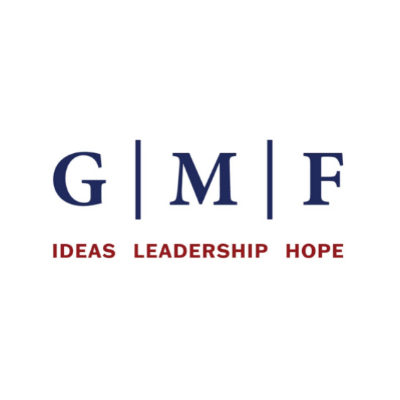- Bias Rating
Center
- Reliability
50% ReliableFair
- Policy Leaning
N/A
- Politician Portrayal
N/A
Extremely
Liberal
Very
Liberal
Moderately
Liberal
Somewhat Liberal
Center
Somewhat Conservative
Moderately
Conservative
Very
Conservative
Extremely
Conservative
-100%
Liberal
100%
Conservative

Continue For Free
Create your free account to see the in-depth bias analytics and more.
Continue
Continue
By creating an account, you agree to our Terms and Privacy Policy, and subscribe to email updates. Already a member: Log inBias Score Analysis
The A.I. bias rating includes policy and politician portrayal leanings based on the author’s tone found in the article using machine learning. Bias scores are on a scale of -100% to 100% with higher negative scores being more liberal and higher positive scores being more conservative, and 0% being neutral.
Sentiments
11% Positive
- Liberal
- Conservative
| Sentence | Sentiment | Bias |
|---|---|---|
| "The key priority is thus to ensure the flexibility and agility of the instruments that allow the EU to react quickly and make best use of existing tools." | Positive | 26% Conservative |
| "However, EU action in this arena can be significantly impacted by political leadership, and here the elections do matter." | Positive | 18% Conservative |
| "In this series, GMF experts discuss the impact the elections will have on EU policy in key areas, consider what can -- and should -- be done before the elections, and outline the potential post-election scenarios.Few topics have become so relevant for the EU in recent years as defense." | Positive | 16% Conservative |
| "There is no doubt that this will remain among the key topics the EU needs to address after the elections." | Positive | 12% Conservative |
| "When Ursula von der Leyen declared that she wanted to head a geopolitical Commission in 2019, some questioned the importance of these aspirations on the grounds that the EU was seen as relying above all on soft power in international affairs." | Positive | 2% Conservative |
| "Top-level policymakers in Brussels should use the last months of the von der Leyen Commission to make another political push for ambitious proposals on security and defense, including those giving more leverage to explicit EU instruments." | Positive | 2% Conservative |
| "The central challenge for EU defense in 2024 is that the bloc needs to manage several crises in its neighborhood at the same time: Ukraine, Israel/ Hamas, and Nagorno-Karabakh are at top of the list, but the EU may also need to react to other, unforeseen crises." | Negative | -8% Liberal |
| "EU defense may be less affected by the EU elections, at least in the short-term, than other policy fields: for the critical political decisions, the ball is in the member states' courts as the Common Security and Defense Policy (CSDP) remains largely intergovernmental and requires unanimity within the Council." | Negative | -10% Liberal |
| "Wars and crises in the EU's neighborhood, insufficient capabilities, and the structural trend toward US disengagement from Europe give the EU no choice but to step up its ability to act in this arena." | Negative | -14% Liberal |
| "Among the processes that are already underway, the EU should thus prioritize the following :From an operational perspective, it will be critical to keep European defense energized after the EU elections." | Negative | -14% Liberal |
| "In 2024, the EU caot afford this." | Negative | -30% Liberal |
Extremely
Liberal
Very
Liberal
Moderately
Liberal
Somewhat Liberal
Center
Somewhat Conservative
Moderately
Conservative
Very
Conservative
Extremely
Conservative
-100%
Liberal
100%
Conservative

Contributing sentiments towards policy:
63% : The key priority is thus to ensure the flexibility and agility of the instruments that allow the EU to react quickly and make best use of existing tools.59% : However, EU action in this arena can be significantly impacted by political leadership, and here the elections do matter.
58% : In this series, GMF experts discuss the impact the elections will have on EU policy in key areas, consider what can -- and should -- be done before the elections, and outline the potential post-election scenarios.Few topics have become so relevant for the EU in recent years as defense.
56% : There is no doubt that this will remain among the key topics the EU needs to address after the elections.
51% : When Ursula von der Leyen declared that she wanted to head a "geopolitical Commission" in 2019, some questioned the importance of these aspirations on the grounds that the EU was seen as relying above all on soft power in international affairs.
51% : Top-level policymakers in Brussels should use the last months of the von der Leyen Commission to make another political push for ambitious proposals on security and defense, including those giving more leverage to explicit EU instruments.
46% : The central challenge for EU defense in 2024 is that the bloc needs to manage several crises in its neighborhood at the same time: Ukraine, Israel/ Hamas, and Nagorno-Karabakh are at top of the list, but the EU may also need to react to other, unforeseen crises.
45% : EU defense may be less affected by the EU elections, at least in the short-term, than other policy fields: for the critical political decisions, the ball is in the member states' courts as the Common Security and Defense Policy (CSDP) remains largely intergovernmental and requires unanimity within the Council.
43% : Wars and crises in the EU's neighborhood, insufficient capabilities, and the structural trend toward US disengagement from Europe give the EU no choice but to step up its ability to act in this arena.
43% : Among the processes that are already underway, the EU should thus prioritize the following :From an operational perspective, it will be critical to keep European defense energized after the EU elections.
35% : In 2024, the EU cannot afford this.
*Our bias meter rating uses data science including sentiment analysis, machine learning and our proprietary algorithm for determining biases in news articles. Bias scores are on a scale of -100% to 100% with higher negative scores being more liberal and higher positive scores being more conservative, and 0% being neutral. The rating is an independent analysis and is not affiliated nor sponsored by the news source or any other organization.



























 The German Marshall Fund of the United States Article Rating
The German Marshall Fund of the United States Article Rating